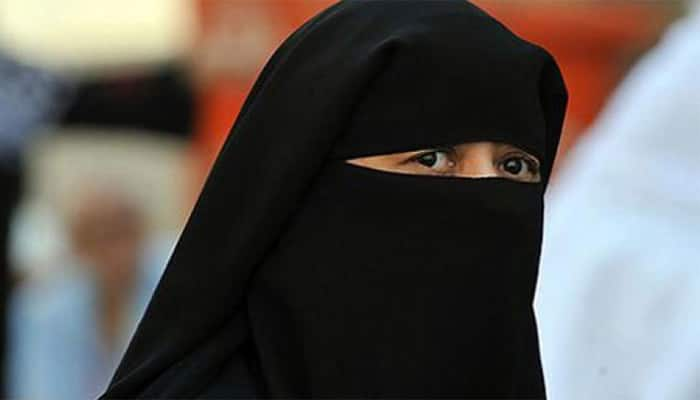New Delhi: The Centre has told the Supreme Court that practices like triple talaq, 'nikah halala' and polygamy impact the social status and dignity of Muslim women and are not protected by the right to profess, practise and propagate religion under Article 25(1) of the Constitution.
While putting forward its argunets before the SC bench, the government reiterated its earlier stand saying these practices render Muslim women "unequal and vulnerable" as compared to men of their community as well as women belonging to other communities.
The Centre described triple talaq, 'nikah halala' and polygamy as "patriarchal values and traditional notions about the role of women in society".
"There are unreasonable classifications which arise from practices such as those under challenge in the present petition, which deny to Muslim women the full enjoyment of fundamental rights guaranteed under the Constitution," it said.
"The practices which are under challenge, namely, triple talaq, nikah halala and polygamy are practices which impact the social status and dignity of Muslim women and render them unequal and vulnerable qua men belonging to their own community, women belonging to other communities and also Muslim women outside India," the Centre said.
"There are unreasonable classifications which arise from practices such as those under challenge in the present petition, which deny to Muslim women the full enjoyment of fundamental rights guaranteed under the Constitution," it said.
Pointing out that gender justice was a constitutional goal of overwhelming importance and magnitude, the Union government said the Fundamental Right to Equality takes within its fold, equality of status and the gender equality, gender equity and gender justice are values intrinsically entwined in guarantee of equality under Article 14.
The practices of triple talaq, 'nikah halala' and polygamy impact the social status and dignity of Muslim women and render them unequal and vulnerable qua men belonging to their own community; women belonging to other communities and also Muslim women outside India, it added.
Referring to reforms by several Islamic countries, including those have overwhelming Muslim population, the Centre said Pakistan, Bangladesh, Afghanistan, Morocco, Tunisia, Turkey, Indonesia, Egypt and Iran have undertaken significant reforms and the practices of instant triple talaq or automatic polygamy at will is not permitted in most of these countries.
Describing triple talaq, 'nikah halala' and polygamy as repugnant to the guarantee of secularism -- an essential feature of the Indian Constitution -- the Centre said that lopsided development and pockets of social backwardness is not in the larger interest of the integrity and development of the nation.
Under the triple talaq, a Muslim man can instantly divorce his wife by repeating 'talaq' thrice. As per 'nikah halala', a woman divorcee, has to marry someone else and consummate this marriage before getting a divorce to remarry her earlier husband.
One million Muslims, with women in majority, sign petition against triple talaq
In a significant development, over a million Muslims from across India, have called for the end of controversial divorce practice of triple talaq.
A petition started by the Muslim Rashtriya Manch (MRM), an Islamic organisation affiliated with the Rashtriya Swayamsevak Sangh (RSS), calling for the abolition of triple talaq, has received signatures of more over a million Muslims from across India with women in majority.
The Centre had on October 7 last year opposed in the apex court the practice of 'triple talaq', 'nikah halala' and polygamy among Muslims and favoured a relook on grounds like gender equality and secularism.
The AIMPLB had told the court that pleas challenging such practices among Muslims were not maintainable as the issues fell outside the realm of judiciary.
However, the AIMPLB today said that practice of triple talaq will be abolished in 18 months.
The statement was given by AIMPLB vice president Dr Sayeed Sadiq.
While commenting on the contentious issue, Dr Sadiq said that AIMPLB will do away with triple talaq and there is no need for government's interference.
Interestingly Sadiq's statement comes two days after AIMPLB claimed that the Muslim community has a low rate of divorce and that it has received 3.50 crore forms from Muslim women around the country favouring Shariyat and triple talaq.
While putting forward its arguments before the apex court bench, the AIMPLB had earlier told the SC said that triple talaq mode of divorce can't be termed illegal as “if such casual denunciation of the verses of the holy book is permitted, then soon Islam would cease to exist.”
















